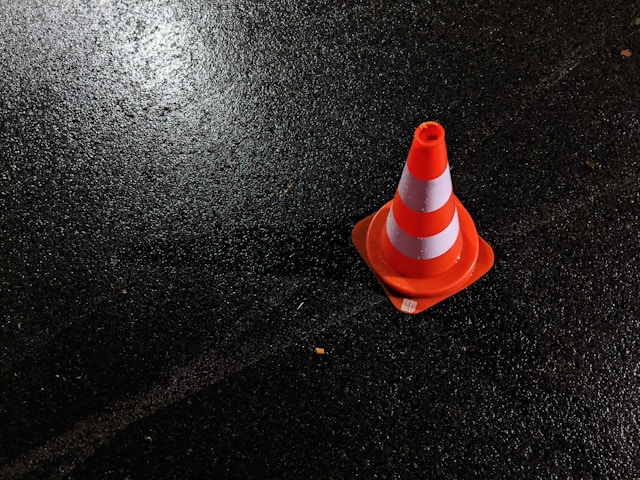Car accidents affect people in many ways. Some injuries are easy to see, like bruises or broken bones. Others build up over time and cause pain later. When hurt in an accident, it’s important to take every type of injury seriously, even the ones that initially seem minor. Each accident is different, but the types of injuries that result usually fall into a few known categories. Some go away with rest. Others may stay with you for a long time. Below are common car accident injuries and what they may mean for your health.
Physical Trauma That Shows Up Right Away
In many accidents, people hit their heads, twist their backs, or stretch muscles in ways the body isn’t built for. These effects can show up quickly.
Head and Brain Injuries
A crash can shake your head hard enough to bruise the brain. A hit to the skull or a fast back-and-forth motion can lead to a concussion or worse. When the brain moves inside the skull, it can cause damage that affects memory, mood, and behavior for weeks or more.
Neck and Back Problems
These injuries often happen when the neck snaps forward and back suddenly. This is commonly called whiplash. Pain may start right away. Or it might take days before you notice it. In more serious cases, an accident can cause a disc in your spine to shift out of place. This can pinch nerves, cause pain or numbness, or limit how you move.
Chest and Rib Injuries
Seatbelts save lives. But during a strong impact, the force of the belt pressing into your chest can leave marks, bruises, or even break ribs. These types of injuries are more common for drivers, since they are close to the steering wheel. Even without hitting anything inside the car, chest injuries can happen from the pressure alone.
Unexpected Signals You Shouldn’t Ignore After A Crash
Sometimes, people overlook the signs that their pain is tied to something deeper. Headaches that stick around, or a tight feeling in your chest days after a crash, can point to injuries that haven’t been fully diagnosed. It’s not always clear right away what’s normal soreness and what could signal hidden problems.
Pain relief methods vary. Some people try over-the-counter medications. Others might read product reviews before turning to less common options like THC-p disposable vapes, topical creams, or herbal supplements. These choices reflect how people deal with injury pain in ways that feel manageable to them.
Damage To Arms, Legs, And Joints
The way the body moves during a crash can cause damage to limbs and joints without any broken bones.
Knee Strikes and Leg Pain
When seated in the front, legs often hit the dashboard. This sudden hit can hurt knee cartilage or even crack the kneecap. Pain in the knee may not show up until hours or days later. Once it does, it can make walking or standing very difficult.
Shoulder and Upper Arm Trouble
The seatbelt goes across one shoulder, which means that side often takes more of the pressure during a crash. The force can stretch or tear muscles and ligaments. A twisted or sore shoulder after an accident should be checked, especially if it gets worse with time.
Side Impacts and Bruises
When hit from the side, legs and arms often get slammed into doors or center consoles. This can lead to cuts, bruises, and in some cases, broken bones. Some of these injuries can heal with time, but others may limit how you move.
Common But Overlooked: Soft Tissue Injury
Soft tissue means the muscles, ligaments, and tendons — all the parts of the body that hold your bones together and allow you to move. A crash puts sudden stress on these tissues.
Sprains, muscle strains, and small tears can cause stiffness and aching, especially in the neck, shoulders, and lower back. These injuries don’t show up on an X-ray, which makes them harder to detect. But they can still cause long-term pain if not treated early.
Pain That Appears Later
Not all car accident injuries hurt right away. Some pain builds slowly. You might feel fine right after the crash, only to notice stiffness or headaches days later.
Signs of Brain Injuries
If your head hit part of the car during the crash, your brain might be hurt, even if you didn’t lose consciousness. This can cause problems with vision, memory, and mood. Some people may feel lightheaded or confused. These signs may be early warnings of a traumatic brain injury.
Signals From Your Mental Health
Coping with a crash isn’t only about physical healing. Some survivors also feel emotionally different. They may become more anxious, feel depressed, or have trouble sleeping. These changes may come from head injuries or emotional stress caused by the accident itself.
Florida law lets people file claims for both physical and emotional damage from an accident. But you need medical records that show the injury is real and related to the crash.
What You Can Do
Seeing a doctor soon after the accident is one of the best decisions you can make. Even if the injury feels small, it may get worse without care.
Also, be honest with your doctor. Tell them everything – even the small aches. That way, they can order the right tests or refer you to a specialist if needed.
Using a seatbelt is still one of the most effective ways to protect yourself in a crash. Safe driving habits lower the risk, but can’t stop every accident. If you’ve been hurt, don’t delay care.
Let the symptoms guide you. If something doesn’t feel normal, don’t ignore it. Early help makes healing easier and may lower the chance of long-term pain from your car accident injuries.
